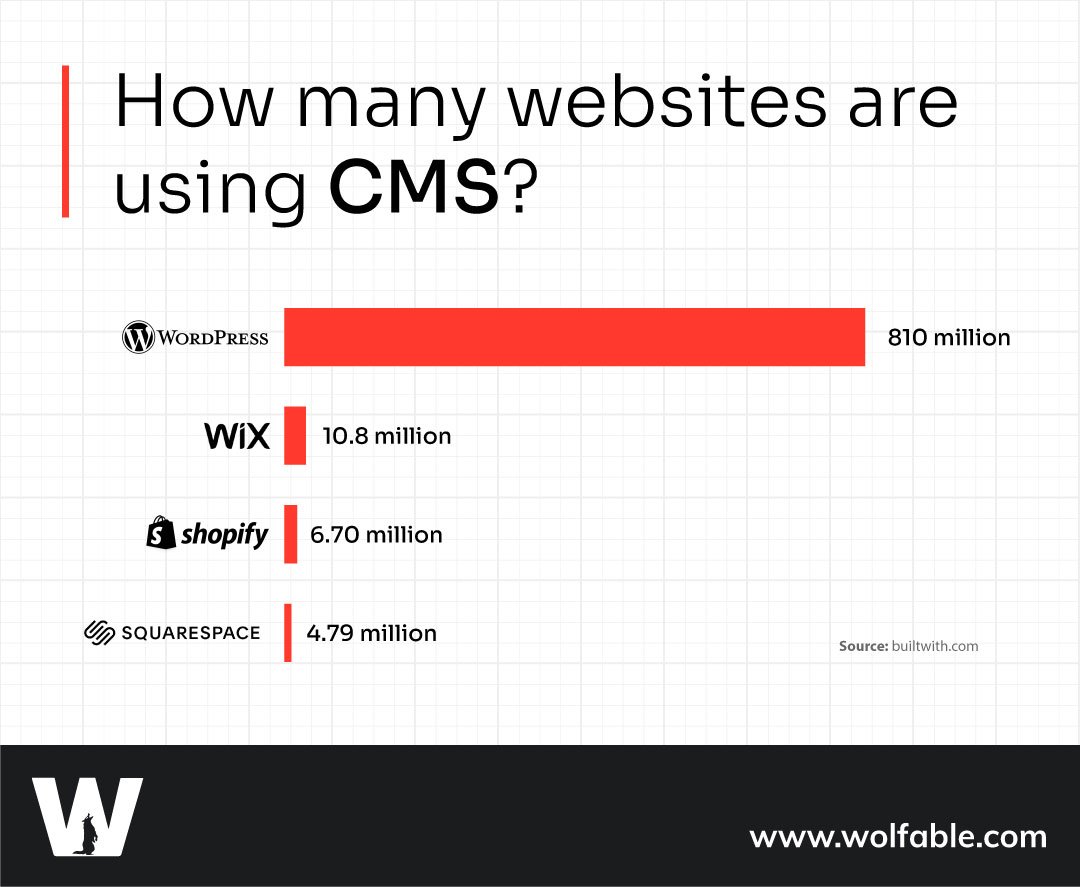Wraps up in 13 Minutes
Unveiling LCNC: Simplified Development Tools for Everyone
An estimated 70% of newly developed business applications are projected to utilize low-code and no-code technologies.
Sounds crazy, right?
You might have come across the notion that "Low Code web development is poised to dominate the future," or even heard claims like "LCNC platforms are instrumental in cutting development time by a staggering 60%." Now, let's immerse ourselves in this topic and explore it in greater depth.
In today's fast-paced digital landscape, businesses are constantly striving to stay ahead of the curve, seeking innovative solutions to drive growth and efficiency. One of the most pressing challenges faced by organizations across industries is the shortage of skilled web developers. As technology continues to advance at an exponential rate, the demand for developers has outpaced the supply, leaving businesses grappling with a critical technical gap.
However, in the face of this challenge, a new trend is emerging that promises to revolutionize web development and empower individuals and businesses alike. Enter "Low Code No Code" (LCNC) development platforms - a game-changing approach that enables users with little to no coding experience to build functional and robust web applications.
The statistics speak for themselves. According to recent reports, a staggering 84% of businesses are adopting low-code or no-code tools as a means to address the technical gap caused by the shortage of developers. This remarkable shift signifies a paradigmatic change in the way we think about web development and the democratization of software creation.
But what exactly is low code no code? How does it work? And what benefits does it offer for non technical developers? In this blog post, we will explore the world of low code no code web development, examining its underlying principles, exploring its potential applications, and delving into the reasons why so many businesses are embracing this transformative approach.
Unveiling LCNC: Simplified Development Tools for Everyone
- Low code no code (LCNC) is a development approach that enables individuals with limited coding experience with fully/limitless customizable functionality to create web applications.
- Low code platforms provide a visual interface and pre-built components for assembling applications.
- No code platforms go a step further by eliminating the need for coding, offering simply easy to build functionality where you can more focus on creativity and user experience.
- LCNC tools aim to make web development more accessible to a wider range of users.
- LCNC platforms empower businesses to create web development solutions without relying solely on skilled developers.
- These tools leverage visual interfaces, pre-built components, and automation to simplify the development process.
- LCNC is revolutionizing web development by bridging the technical gap caused by the shortage of skilled developers.
- Businesses are increasingly adopting LCNC tools, with reports showing that 84% of them are utilizing low-code or no-code solutions.
Essential Components for Building a No-Code Website
Building a website using a no-code platform brings numerous advantages, including simplicity, speed, and cost-effectiveness. With the right tools and resources, you can create a fully functional website with low code web development.
Here are the essential components you'll need to bring your no-code website to life:
- Hosting: To make your website accessible on the internet, you'll need a reliable hosting service. Several hosting providers offer user-friendly interfaces and integrations specifically designed for no-code websites.
- Domain: Choose a unique domain name that represents your brand or business. A domain name serves as the address for your website, allowing visitors to find and access it easily. Many hosting providers also offer domain registration services.
- CMS Platform: Content Management Systems (CMS) provide the backbone for managing and organizing the content of your website. With a Low Code No Code CMS platform, you can easily create, edit, and publish content without any technical knowledge. Popular no-code CMS options include WordPress, Wix, and Squarespace.
- Web Builder: A Low Code No Code web builder is the key tool for designing and constructing your website. These intuitive platforms offer easy to use functionality, pre-designed templates, and customizable elements that allow you to create a visually appealing and user-friendly website. Some popular no-code web builders include Webflow, Bubble, and Card.
Once you have the necessary components in place, you can leverage the power of Low Code No Code tools to design, customize, and publish your website. With just a few clicks and configurations, your website will be ready to go live, enabling you to establish an online presence quickly and effortlessly.
Low code no code (LCNC) Unveiled: Dispelling Myths and Revealing Facts
Low code no code (LCNC) development has gained significant traction in recent years, revolutionizing the way we create software solutions. However, as with any emerging technology, there are myths and misconceptions surrounding LCNC.
Let's debunk some of the common myths and shed light on the facts about LCNC:
Myth 1: LCNC is only for non-technical users.
Fact: LCNC is built to save time, it's not specific for non-technical users. Nowadays many developers are using LCNC to achieve desired output with faster time. LCNC platforms to accelerate development processes, streamline workflows, and focus on complex coding tasks while using pre-built components for routine functionalities.
Myth 2: LCNC platforms produce subpar or generic applications.
Fact: LCNC platforms offer a wide range of customization options, allowing users to create unique and tailored applications. With easy to use interfaces, template libraries, and flexible design options, LCNC empowers users to build visually appealing and feature-rich applications that meet specific business requirements.
Myth 3: LCNC eliminates the need for developers altogether.
Fact: While LCNC reduces the dependency on extensive coding skills, developers still play a crucial role. They are needed to integrate complex systems, develop custom functionalities, and ensure scalability and security. LCNC platforms complement developers' skills by speeding up the development process and enabling them to focus on more challenging aspects of a project.
Myth 4: LCNC applications lack scalability and flexibility.
Fact: LCNC is build to give your business boost online with minimum time. These platforms allow businesses to adapt and extend their applications as requirements evolve. LCNC applications can integrate with various APIs, databases, and services, enabling seamless expansion and integration into existing systems.
Myth 5: LCNC is a passing trend.
Fact: LCNC is not a passing fad but a transformative trend in the development landscape. The adoption rate of LCNC tools continues to grow, with businesses across industries embracing the benefits of rapid development, cost-effectiveness, and democratization of software creation. LCNC empowers individuals and organizations to innovate, iterate, and bring their ideas to life quickly.
Empowering with LCNC Platforms: Revolutionizing Development

In the realm of low code no code (LCNC) development aka simplified app development, several platforms have emerged as powerhouses, enabling individuals and businesses to create stunning websites and robust online solutions without extensive coding knowledge.
Let's explore some of the leading LCNC platforms that have transformed the web development landscape:
WordPress
With a staggering 43% of all websites on the internet built on its platform, WordPress is undoubtedly a dominant force in the LCNC space. It offers a user-friendly interface, an extensive library of themes and plugins, and powerful customization options. WordPress caters to a broad range of users, from bloggers to e-commerce businesses, making it incredibly versatile and scalable.
Shopify
If you're looking to create an online store, Shopify is a top choice. With its intuitive easy to use interface, Shopify simplifies the process of setting up and managing an e-commerce website. It provides a comprehensive suite of features for product management, inventory tracking, secure payments, and seamless integration with various third-party services.
Wix
Wix is a popular LCNC platform known for its simplicity and visually stunning templates. It offers a wide range of design options, customizable layouts, and an extensive app market for adding functionality to your website. Wix caters to different industries and has features tailored for businesses, bloggers, artists, and more.
Squarespace
Squarespace is renowned for its visually appealing and modern website templates. It provides a easy to use editor, built-in marketing tools, and features for e-commerce, blogging, and portfolio websites. Squarespace emphasizes clean design and offers robust support for creative professionals and small businesses.
These are just a few examples of LCNC platforms, each with its unique features, strengths, and target audiences. However, the LCNC landscape is continuously evolving, and new platforms are emerging to meet specific needs and niches.
LCNC platforms have transformed web development by democratizing the process, allowing businesses to create professional-looking websites and online stores without relying on extensive coding expertise. They offer convenience, speed, and cost-effectiveness, enabling users to bring their ideas to life in a fraction of the time and resources traditionally required.
Whether you're an entrepreneur, or small business owner, LCNC platforms empower you to build an online presence, showcase your products or services, and reach a global audience. The power of LCNC lies in its ability to unlock the potential of digital innovation for everyone, regardless of technical background or experience.
Key Shifts in Low-Code No-Code for 2023

- Rapid Adoption: The adoption of LCNC tools continues to surge across industries and organizations of all sizes. The demand for faster development cycles, agility, and cost-efficiency has led businesses to embrace LCNC platforms to bridge the technical gap. This widespread adoption is driven by the need for quick digital transformation and the democratization of software development.
- Enhanced Capabilities: LCNC platforms are evolving rapidly, offering enhanced capabilities and features to meet the demands of users. These platforms now provide more advanced integrations, artificial intelligence (AI) and machine learning (ML) capabilities, data analytics, and collaborative workflows. This empowers users to create more complex and sophisticated applications without extensive coding knowledge.
- Industry-Specific Solutions: LCNC platforms are increasingly focusing on providing industry-specific solutions. Whether it's e-commerce, healthcare, finance, or education, LCNC tools are catering to the unique needs and requirements of different sectors. This trend enables businesses to leverage LCNC platforms that are tailored to their specific industries, accelerating development processes and delivering customized solutions.
- Integration with Advanced Technologies: In 2023, we can expect to see increased integration of LCNC platforms with advanced technologies like artificial intelligence (AI), machine learning (ML), and the Internet of Things (IoT). These integrations aim to make these complex technologies more accessible to non-technical users. LCNC platforms will offer pre-built AI/ML components and IoT connectors, enabling users to incorporate intelligent automation, predictive analytics, and IoT-enabled functionalities into their applications without in-depth technical expertise.
- Market Growth and Financial Potential: The LCNC market is experiencing substantial growth and is poised to become a lucrative industry. According to estimates, the low-code development market is projected to generate a staggering $187 billion by 2030. This growth is fueled by the increasing demand for rapid software development, cost-effective solutions, and the need to bridge the technical gap between the shortage of developers and the demand for innovative applications. As more businesses realize the benefits of LCNC platforms, the market is expected to expand significantly.
These trends highlight the ongoing evolution and maturation of the LCNC landscape. By integrating advanced technologies, LCNC platforms enable non-technical users to harness the power of AI, ML, and IoT, unlocking new possibilities for innovation and automation. This convergence of LCNC and advanced technologies democratizes access to cutting-edge functionalities, enabling businesses to stay competitive and drive digital transformation.
Benefits of Low-Code and No-Code Platforms: Reducing Development Time by 60%
Low-code and no-code platforms have emerged as powerful tools that significantly accelerate the development process, offering numerous benefits to businesses and individuals alike. One of the most compelling advantages is the ability to reduce development time by an impressive 60%.
Let's explore the key benefits of low-code and no-code platforms:
Rapid Application Development:
Visual interface and easy to use functionality enable quick assembly of applications.
Pre-built components and templates allow for rapid prototyping and iteration.
Streamlined Workflows:
Automation of repetitive tasks reduces manual coding efforts.
Built-in features for common functionalities eliminate the need for coding from scratch.
Increased Collaboration:
Visual nature of low-code and no-code platforms facilitates effective communication.
Real-time feedback from stakeholders and non-technical users improves the development process.
Empowering Citizen Developers:
Non-technical users can actively participate in application development.
Citizen developers can contribute to the development process without extensive coding knowledge.
Faster Delivery:
Reduced development time enables quicker delivery of applications.
Rapid iteration and prototyping lead to faster time-to-market.
Agile Development:
Low-code and no-code platforms align with agile development methodologies.
Quick iterations and responsiveness to change are facilitated by the visual development environment.
Cost Savings:
Reduced development time translates to cost savings for businesses.
Fewer resources are required to deliver applications, resulting in increased efficiency.
Innovation and Experimentation:
The accelerated development process encourages experimentation and innovation.
Developers can test ideas, explore new concepts, and adapt quickly to market demands.
These benefits collectively contribute to a significant reduction in development time, allowing businesses and individuals to rapidly create and deploy applications, streamline workflows, and foster innovation. Low-code and no-code platforms empower both technical and non-technical users to be more productive, efficient, and responsive in the software development process.
Ready to Experience the Power of Low-Code and No-Code?
Discover how low-code and no-code platforms are revolutionizing the way website is developed and empowering businesses and individuals to create innovative applications without extensive coding knowledge. From reducing development time to streamlining workflows, the benefits are undeniable.
Are you ready to unlock the potential of low-code and no-code? Start exploring these powerful tools and take your development capabilities to new heights. Get inspired, stay informed, and join the LCNC revolution today!
Visit wolfable to dive into the world of low-code and no-code and unleash your creative potential.









